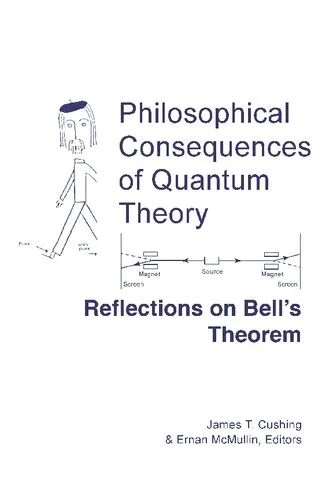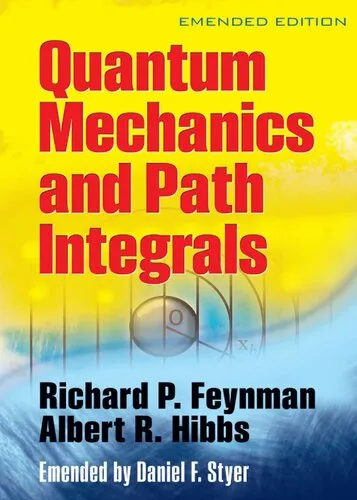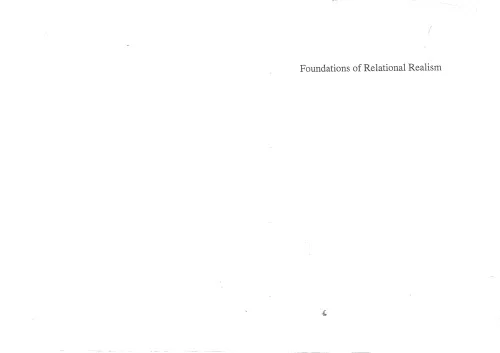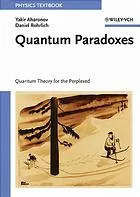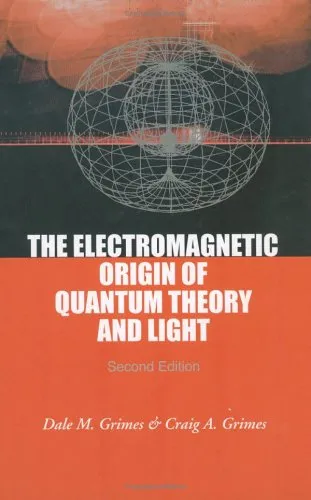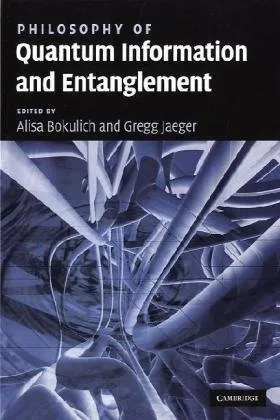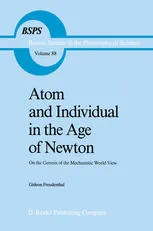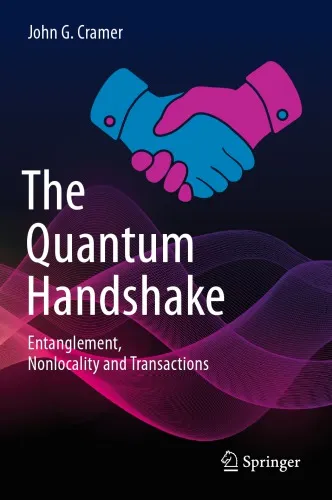Philosophical Consequences of Quantum Theory: Reflections on Bell's Theorem
4.5
Reviews from our users

You Can Ask your questions from this book's AI after Login
Each download or ask from book AI costs 2 points. To earn more free points, please visit the Points Guide Page and complete some valuable actions.Related Refrences:
Welcome to the comprehensive introduction of Philosophical Consequences of Quantum Theory: Reflections on Bell's Theorem, a profound exploration of one of the most intriguing and challenging areas of modern physics and philosophy. This book, co-authored by James T. Cushing and Ernan McMullin, delves into the philosophical implications of Bell's Theorem, providing an in-depth analysis that is invaluable for both physicists and philosophers alike.
Detailed Summary of the Book
In "Philosophical Consequences of Quantum Theory: Reflections on Bell's Theorem", Cushing and McMullin engage readers with a robust examination of Bell's Theorem—an essential milestone in the discussion about locality and realism in quantum mechanics. This theorem proposed by physicist John S. Bell challenges the fundamental notions of local realism, suggesting that either locality or realism must be relinquished in the context of quantum phenomena. The book offers a collection of essays and reflections by leading scholars in the field, presenting diverse viewpoints on the philosophical and scientific implications that arise from the theorem.
Throughout the book, readers are introduced to critical discussions about the nature of reality, the limits of human knowledge, and the philosophical ramifications of quantum entanglement. Sections of the book range from a detailed explanation of Bell’s theorem itself, considerations of its consequences on our understanding of reality, to speculative discussions on the future directions of quantum theory and its philosophical implications. The introduction of non-locality and the challenge to classical intuitions about the separability of distant objects underscore the profound impact that quantum theory has on the philosophy of science.
Key Takeaways
- Bell's Theorem poses significant challenges to the concept of local realism, which has implications for how we understand the nature of reality and causation.
- The interconnectedness of quantum systems calls into question the conventional division between observer and observed, suggesting a holistic understanding of the universe.
- The book explores the interpretative flexibility of quantum mechanics, highlighting the need for philosophical reflection in scientific discourse.
- By gathering perspectives from various philosophers and physicists, the book underscores the interdisciplinary approach necessary for grappling with complex scientific theories.
Famous Quotes from the Book
"To understand quantum mechanics, we must expand our philosophical inquiry beyond the bounds set by classical intuitions."
"One of the remarkable features of Bell's Theorem is its ability to reframe fundamental questions about the universe as questions about the information available to us."
Why This Book Matters
“Philosophical Consequences of Quantum Theory” is more than a scholarly treatise; it is a crucial bridge between the empirical and the speculative, encouraging an ongoing dialogue between scientific findings and philosophical thought. In an era where quantum computing and other technologies emerging from quantum mechanics are reshaping the fabric of modern life, understanding the philosophical underpinnings of these ideas is essential.
This book's importance lies in its ability to provide clarity and provoke thought in the often-convoluted conversation surrounding quantum mechanics. It addresses the deep-seated questions about reality and measurement that remain at the forefront of scientific and philosophical inquiry. By examining the implications of Bell's Theorem, Cushing and McMullin do not just contribute to the academic discourse but also provide insights that have the potential to influence future scientific endeavors and technological advancements.
Beyond the confines of academia, the conversations and reflections in this collection have bearing on broader philosophical considerations pertinent to epistemology, metaphysics, and the philosophy of science, making it essential reading for anyone interested in the deeper questions of existence and the nature of knowledge.
Free Direct Download
You Can Download this book after Login
Accessing books through legal platforms and public libraries not only supports the rights of authors and publishers but also contributes to the sustainability of reading culture. Before downloading, please take a moment to consider these options.
Find this book on other platforms:
WorldCat helps you find books in libraries worldwide.
See ratings, reviews, and discussions on Goodreads.
Find and buy rare or used books on AbeBooks.
1585
بازدید4.5
امتیاز0
نظر98%
رضایتReviews:
4.5
Based on 0 users review
Questions & Answers
Ask questions about this book or help others by answering
No questions yet. Be the first to ask!
